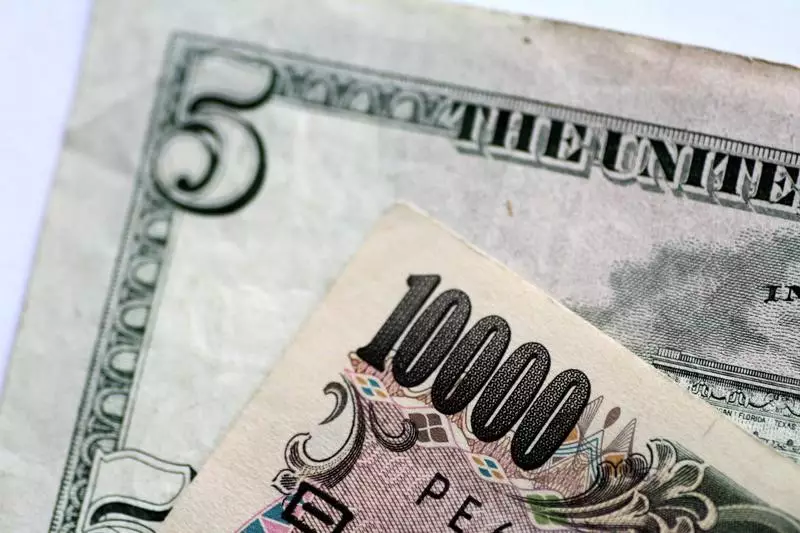The Japanese yen has strengthened against the US dollar, reaching its most robust level in over a month, in reaction to unexpectedly high inflation figures from Tokyo. This situation has led to a reshaping of market perspectives regarding the Bank of Japan’s (BOJ) monetary policy. The recent fluctuation of the USD/JPY exchange rate, which measures how many yen are required to purchase a dollar, demonstrates a significant dip, falling approximately 1% to reach 150.01 yen. This drop marks the lowest exchange rate observed since late October, culminating in a quick response from investors and analysts looking to reassess their economic outlook.
November’s consumer price index (CPI) data from Tokyo has crucial implications for national inflation trends, as it often serves as an early indicator. The stronger-than-anticipated CPI has contributed to heightened expectations for a potential rate increase during the BOJ’s upcoming meeting in December. With inflationary pressures looking more persistent, analysts have noted an uptick in the probability of the BOJ adjusting interest rates. The anticipation is further solidified by a recent Reuters survey suggesting a consensus among traders for a 25 basis point hike next month.
Kazuo Ueda, the BOJ Governor, has openly supported the notion of an interest rate hike, framing it within the context of a “virtuous cycle” characterized by increasing wages paralleling steady inflation. Analysts from ING have pointed out that the combined effect of rising inflation and positive recovery indicators in consumer spending enhances the odds for this anticipated hike in December, which would mark the BOJ’s third increase in the calendar year of 2024.
This potential hike is significant as it follows nearly a decade during which Japan operated under negative interest rates. The central bank’s shift towards tightening its policy is largely fueled by robust wage growth observed throughout the year, which has bolstered both private spending and inflation metrics. Furthermore, UBS has projected continued wage growth into 2025, hinting at the possibility of additional rate increases.
However, the rising interest rates have not been without consequence for domestic markets. On the contrary, Japanese equities have reacted negatively to the prospect of elevated interest rates; as evidenced by the Nikkei 225 index, which recorded a decrease of 0.7%, with the broader TOPIX index also down by 0.6%. Investors are showing caution as the interplay between interest rates and economic growth unfolds in the context of a stronger yen and its implications for export-driven sectors.
The Japanese yen’s recent movement underscores the complex interplay between inflation data and monetary policy outlook. As the BOJ approaches its decision-making meeting, the market’s sensitivity to inflation trends will likely persist. With ongoing uncertainties surrounding global economic conditions, attention will be on how the BOJ navigates its policy in response to inflationary pressures and wage growth, and how these decisions will influence the yen’s position against the dollar and its broader economic implications.

